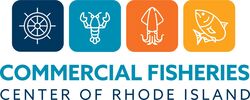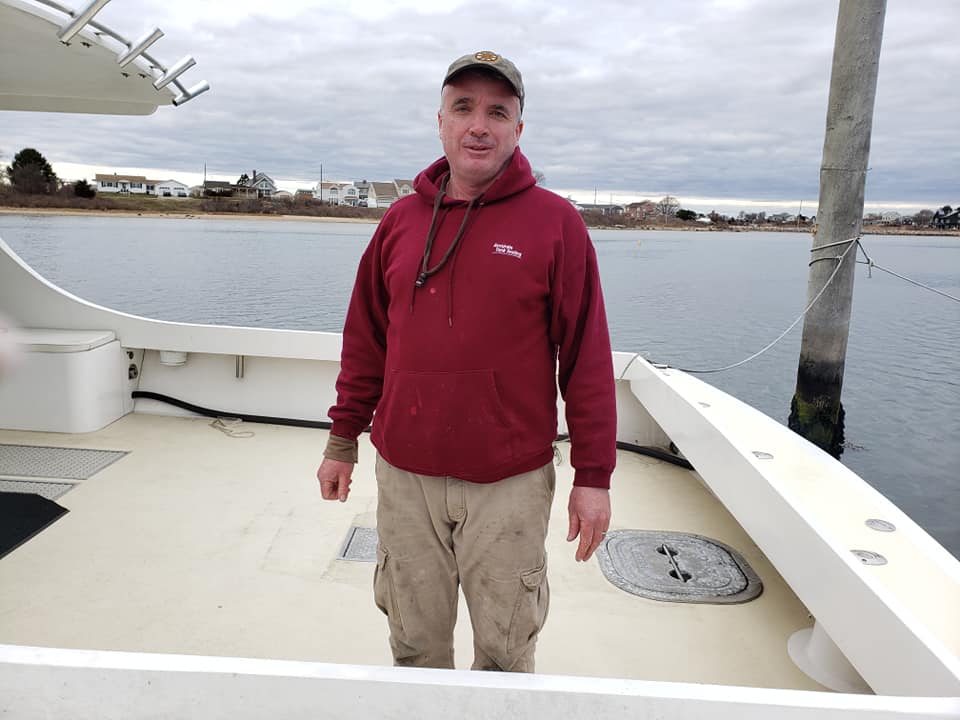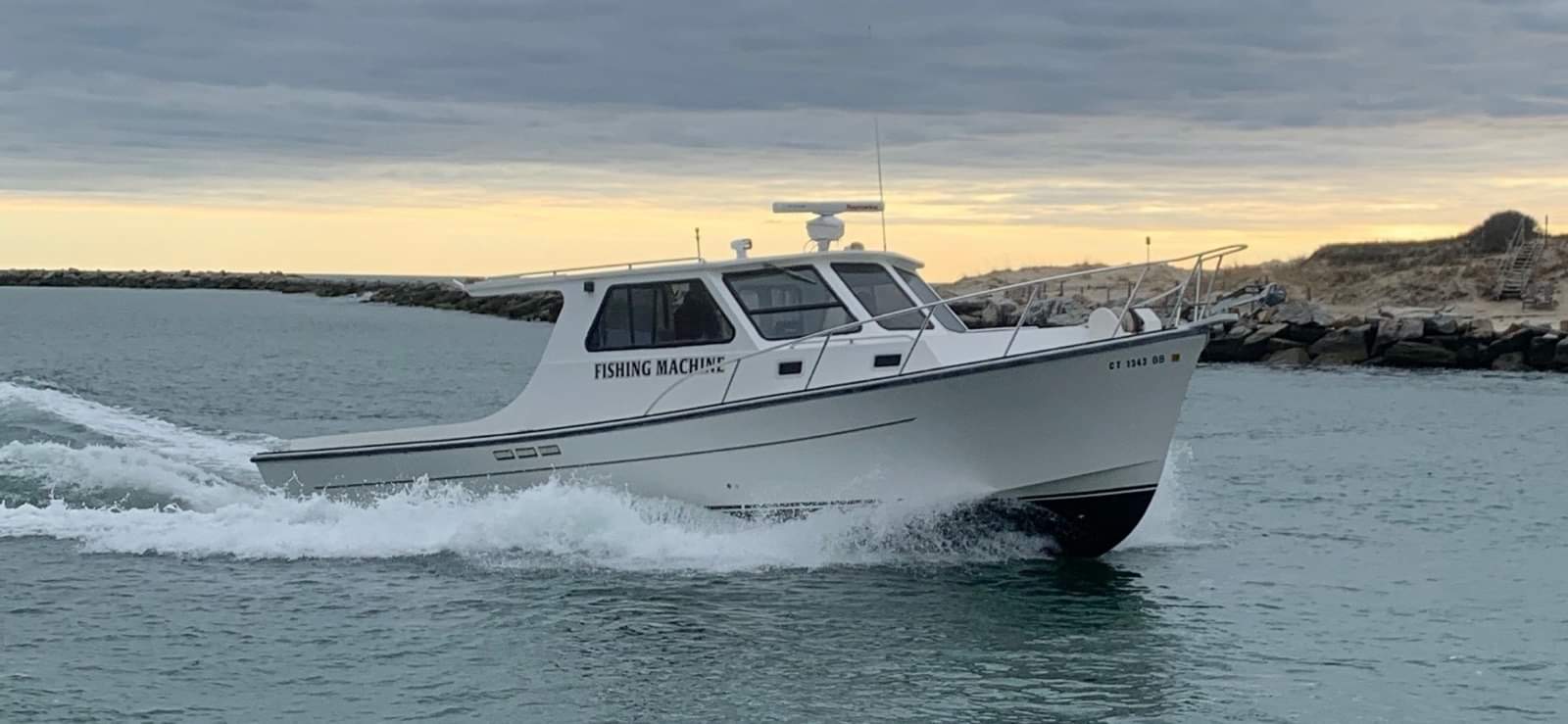|
By Sarah Schumann In the fisheries world, we tend to talk about the party and charter boat fleet as if they were two halves of the same coin. After all, both sectors are in the business of providing bait, helpful tips, and a moving platform at sea to help recreational anglers maximize their catch and enjoyment. And for the most part, the only aspect in which they truly differ is in their size. In a pandemic-stricken world, however, size matters – and being small, it seems, offered a distinct advantage for charter boats in 2020. According to rumor, six-pack charter boats (so-called because they are licensed to carry up to six passengers) may have had one of their best seasons in recent memory, while their neighbors in the party boat fleet had a dismal year. To learn more, I talked to Mike O’Grady, who has an insider’s view into both sectors in Point Judith. O’Grady is a longtime captain on the Frances Fleet party boats, and more recently launched a charter business on his 38-foot vessel, Fishing Machine. The spring season was rough for both party and charter boats, O’Grady explains. The complete shutdown that occurred during the first few months of the pandemic forced all for-hire boats to cancel reservations and miss out on squid season. That was bad, but it could have been worse, O’Grady says: if a shutdown had to happen, the early spring shoulder season was probably the best time for it. Phase II of Rhode Island’s reopening allowed for-hire vessels to begin operating again at reduced capacities in June. This was when the fates of party and charter boats began to diverge. “Party boats got hit the worst because their carrying capacity got hit,” O’Grady explains. This is because party boats charge by the head, so any reduction in their capacity can have large implications in terms of revenue. Reopening guidelines used a formula that factored in a for-hire vessel’s length and beam to calculate the number of anglers who could safely fish together on a trip. For the Frances Fleet, this meant carrying a maximum of 27 people per trip on a boat designed to hold 136. Although this number rose to 40 over the summer and to 89 by fall, the business had to run for a full season on a partial customer base, earning only partial revenues. One unexpected silver lining of these capacity reductions, O’Grady observes, was that they unleashed a sort of demand-smoothing effect. Usually, customer demand peaks on weekends and softens on weekdays, he explains. “But one of the weird things that happened out of this is that people were looking to book those days that would be a little bit lighter. You didn’t really have your low, low days. Bookings were at a premium and people didn’t want to get shut out.” Like party boats, charter boats also had to reduce their capacity to meet social distancing rules. But since charter customers pay by the trip rather than the head, capacity reductions had a smaller effect on revenues. More importantly, many customers seemed to feel that charter boats were a lower-risk environment than party boats, O’Grady observes. For example, on charter boats, customers could book trips with other members of their Covid pods. “Some people gravitated away from the party boats to go on the six-pack because it’s a little more of a controlled atmosphere,” he explains. “You book a trip with six people you’re comfortable with. Some people were reluctant to get on a party boat with a bunch of strangers.” “As the summer went on,” O’Grady recalls, “demand was really good.” In fact, he feels that the pandemic “generated a small uptick in new business” for charter boats. Although both party and charter boats suffered from a downturn in out-of-state visitors, and captains missed seeing some of their long-time customers in at-risk age groups, they saw an increase in first-time anglers looking for a new hobby while their usual summertime leisure activities were off-limits. “I was adding on some afternoon trips,” O’Grady says. “A lot of the charter boats were getting calls to do afternoon trips. There was definitely a drive of first-time people.” “Hopefully people who were exposed will generate some return business going forward,” O’Grady muses, adding that the industry has long suffered from a graying trend among its customer base. If new people got hooked on angling as a result of the pandemic, it would be a blessing in disguise. “I hope people get introduced to it,” O’Grady says. “I think that’s one of the things that seriously affecting our industry, aside from Covid. People don’t do things to get their hands dirty. Kids nowadays are raised with the tablets and screen. To get them to go outside on a colder than normal day? They’re so used to the air conditioned or heated environment. To go out and do hunting or fishing or something that requires some patience and some inner fortitude and some persevering through some weather or rain? The biggest issue that our industry is battling is trying to get people to do things that involve getting dirty.” Only time will tell if this new trend has staying power. In the meantime, O’Grady and his fellow for-hire fishermen are focused on trying to get through the immediate twists and turns of the pandemic.
Each new phase and season seems to present its own challenges. For instance, the Frances Fleet offers cod trips all winter long, but the lower temperatures make it harder to maintain social distancing, as customers want to spend more time in the heated cabin and less time out on the rail while vessels are underway. “You definitely notice as the country has had that uptick in the last month or so, people cancelling trips because they couldn’t travel or because they’d have to quarantine when they get back. Over the winter, I think we’ll see a drop-off in customers.” Party and charter boat fishermen: Would you benefit from technical assistance or marketing advice to help your business recover from the pandemic and keep new anglers engaged in fishing? Team up with the Fish Forward project! About Fish Forward: From now until September 2021, the Commercial Fisheries Center of RI and RI Small Business Development Center are teaming up to support business innovation and resilience in the seafood sector, thanks to general funding provided by the federal CARES Act. Contact [email protected] for more information or to get involved.
3 Comments
4/28/2021 07:44:02 pm
It's a hard time for you guys during this pandemic. I hope you and your team will overcome this situation soon.
Reply
1/18/2023 04:29:03 am
I was captivated when you mentioned that customers prefer to spend more time in the heated cabin when fishing at lower temperatures. My friend wants us to go on a fishing charter trip. I should join him since it's a good way to relax.
Reply
Leave a Reply. |
October is National Seafood Month, and we want to celebrate our waters’ bounty this year more than ever! Commercial Fisheries Center of RI invites you to follow our blog and social media for a special month of storytelling, as we profile local businesses and the exceptional resilience, grit, and innovative spirit that makes Rhode Island fisheries uniquely resilient.
Blog Topics |
Location |
|


